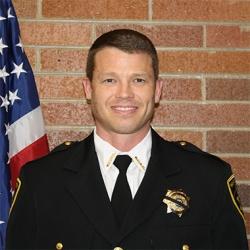Wasatch County Sheriff's Office - Dispatch Center
The Wasatch County Dispatch Center is responsible for receiving telephone calls (via 911 or non-emergency calls to 435-654-1411), obtaining basic information about the incident, and dispatching the appropriate agency to the scene.
As a caller, you can best assist dispatchers in helping you by:
- Providing the address or location description of the incident.
- Providing a phone number so that the dispatcher can call you back immediately if the line is disconnected.
- Communicating the basic events and people involved in the incident.
- Being willing to answer the dispatcher’s questions.
After receiving the above information, the Dispatch Center sends the appropriate responders (e.g. E.M.S., FIRE, Search and Rescue, law enforcement, and/or Animal Control) to the scene. They also log the call for service so that the incident is recorded.
After the responding crews arrive, the Dispatch Center assists with any telephone calls that need to be made (e.g. to Air Med or Life Flight helicopters, tow trucks, owners of vehicles or animals). When requested by law enforcement, they also research criminal histories and arrest warrants and begin the jail paperwork when a person is arrested.
Separate from calls for service, agencies that initiate their own administrative tasks (e.g., training, attending meetings) may request the Dispatch Center log the incident for their own internal purposes.
When catching a glimpse of the work of a 911 dispatcher, some days are very busy and stressful when the call volume is high or when certain emergency calls come in (e.g., choking children, crashes involving multiple vehicles, and family disputes). Other days can be slow, with only a few calls for service.
One thing is sure: the Dispatch Center's stress level can change at any second, jumping from one extreme to the other almost instantly. Because of that, dispatchers must be multitaskers, willing to take on whatever incident the next call brings! Emergency responders consider dispatchers to be their personal lifelines to safety—and rightly so. When something bad happens and an officer needs help, their dispatcher is the person who will get him or her help. Dispatchers, thanks for being dependable and hard workers!

